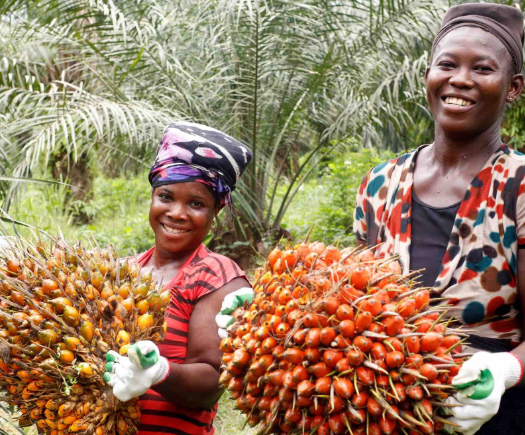The Oil Palm Development Association of Ghana [OPDAG] is lamenting over the constant smuggling of vegetable oil to the country through unapproved routes by some traders.
The Association said the situation is not only depriving the local producers of over 600,000 metric tonnes of vegetable oil production monthly but also affecting livelihoods with over 300,000 workers in Ghana’s oil palm and refinery sectors at risk of losing their jobs.
The industry faces its worst fears of impending collapse due to the continuous smuggling of vegetable oil from other countries.
Selorm Quame, Executive Secretary of OPDAG, disclosed that there are 560,000 farmers and about 300,000 at risk of losing their jobs due to the incessant acts of some market women dealing with vegetable oil smugglers.
Speaking at a sensitization workshop held for Accra market women on how to curb the smuggling of vegetable oil into the market, he noted that the OPDAG cannot assure buyers and consumers of the food safety standards and hygienic conditions under which the smuggled vegetable oil was produced.
According to him, local oil production cannot be compromised as it is done under good hygienic conditions with its food safety standards being certified by the Food and Drugs Authority/ Ghana Standard Authority.
Selorm Quame said, “OPDAG is focused on promoting sustainability palm oil production, processing, and trading in Ghana.”
On his part, Chief Executive Officer (CEO) of the Tree Crop Development Authority (TCDA), William Agyapong Quaittoo explained that smugglers of cooking oil through the borders evade taxes and sell oil at a price that threatens the survival of the local producers of the oil.
He stressed that the local oil producers have constantly battled with unfair competition, incurring more losses.
In his efforts to combat smugglers’ bad practices, William Agyapong Quaittoo urged market women to work with the task force to root out the bad nuts to help boost local oil production.
Mr. Paul Amaning, Coordinator of the Task Force, noted that TCDA’s main objective is to ensure that locally manufactured cooking oils are sold on the market to help boost the economy and create jobs in the value chain.
Representatives from the Customs Division and National Security, also highlighted a few issues regarding the smuggling of vegetable oil through unapproved routes by some traders.
They urged market women to be guarded according to the laws of the country when buying vegetable oil.
Some market women shared their views on why the TCDA must incorporate them into the task force to help curb the activities of these smugglers at the various market centres in Accra.
Source: Michael Oberteye, Contributor

 Sports4 days ago
Sports4 days ago
 Business4 days ago
Business4 days ago
 Business4 days ago
Business4 days ago
 Health4 days ago
Health4 days ago
 Business4 days ago
Business4 days ago
 Politics4 days ago
Politics4 days ago
 Entertainment4 days ago
Entertainment4 days ago
 Sports4 days ago
Sports4 days ago















